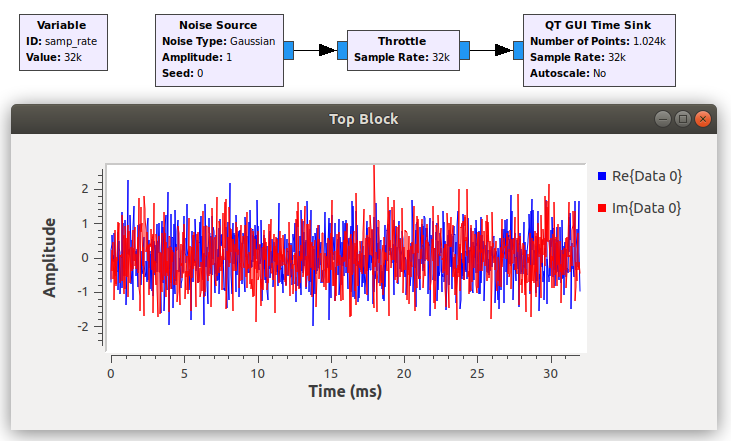Noise Source: Difference between revisions
Jump to navigation
Jump to search
No edit summary |
No edit summary |
||
| (One intermediate revision by the same user not shown) | |||
| Line 1: | Line 1: | ||
[[Category:Block Docs]] | |||
Produces a "noise" signal using either a Gaussian or Uniform distribution | Produces a "noise" signal using either a Gaussian or Uniform distribution | ||
Supports output of type complex, float, int, or short. | Supports output of type complex, float, int, or short. | ||
== Parameters == | |||
Example Flowgraph | ; Noise Type | ||
: The random distribution to use, only Gaussian and Uniform are supported | |||
; Amplitude | |||
: The standard deviation of a 1-d noise process. If this is the complex source, this parameter is split among the real and imaginary parts | |||
; Seed | |||
: Seed for random generators. Note that for uniform and Gaussian distributions, this should be a negative number | |||
== Example Flowgraph == | |||
[[File:Noise-source-ex.png]] | [[File:Noise-source-ex.png]] | ||
Revision as of 03:09, 15 July 2019
Produces a "noise" signal using either a Gaussian or Uniform distribution
Supports output of type complex, float, int, or short.
Parameters
- Noise Type
- The random distribution to use, only Gaussian and Uniform are supported
- Amplitude
- The standard deviation of a 1-d noise process. If this is the complex source, this parameter is split among the real and imaginary parts
- Seed
- Seed for random generators. Note that for uniform and Gaussian distributions, this should be a negative number
